15 Easy Healthy Meals for Kids And compelling reasons why healthy meals matter for kids.
Have you ever struggled to come up with healthy meals for kids like me?
Creating a healthy meal plan for kids is one of the most challenging tasks for families.
We do not want to introduce them to junks, we want healthy and nutritious meals for them.
I have a child that is a picky eater, which makes it very difficult for me to come up with healthy meal ideas as a busy mom.
All these put together, I started searching for a way out, and guess what, you don’t have to do the assignment anymore.
We have curated 15 easy and creative guides to healthy meals for kids that will do the magic for you.
15 Ultimate Guide to Healthy Meals for Kids – Stress-Free & Mom-Approved
1. Make Fruits and Veggies the Star of the Plate
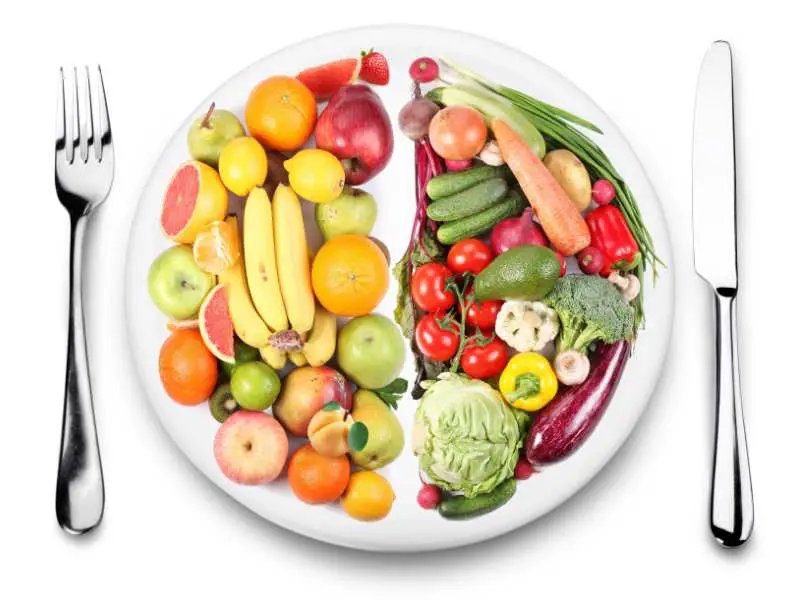
Instead of simply adding a spoonful of vegetables as an afterthought, try building your meals around them.
Think colorful stir-fries, veggie-packed pasta sauces, or rainbow salads.
Kids are more likely to eat what looks fun and inviting, especially when you mix vibrant produce into dishes they already love.
Use cookie cutters to make fruit shapes or create themed plates like “Under the Sea” with broccoli trees and carrot fish.
2. Offer a Balanced Plate with Every Meal
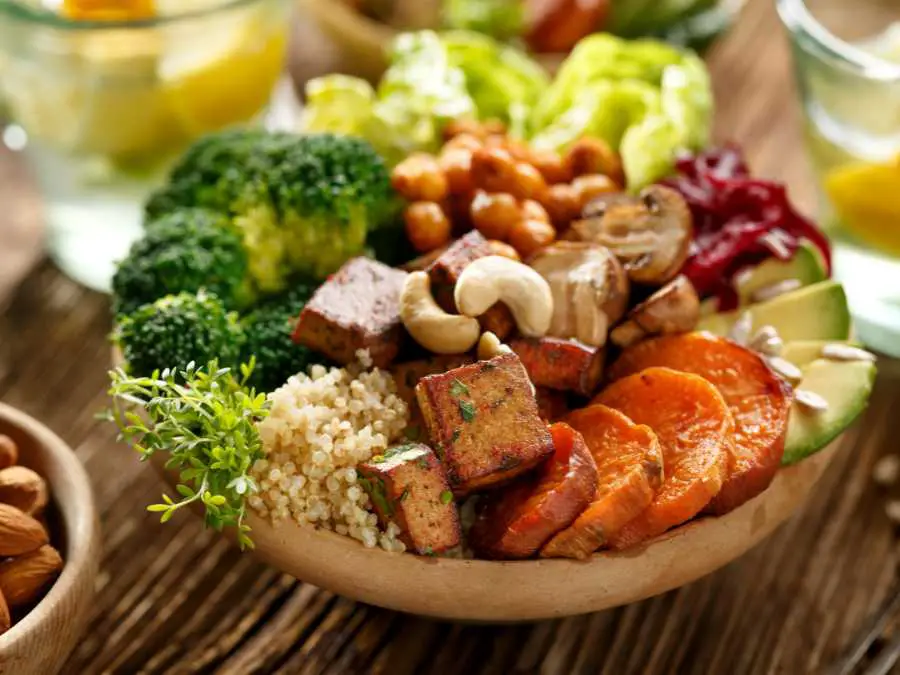 Balance is key when it comes to nutrition.
Balance is key when it comes to nutrition.
A healthy plate should include lean protein (like chicken, beans, or eggs), fiber-rich carbs (like brown rice or sweet potatoes), and plenty of fruits and vegetables.
Don’t forget healthy fats such as avocado, olive oil, or nut butters in moderation.
This balance supports energy, brain development, and overall wellness, and keeps kids full for longer periods.
3. Limit Added Sugars, Not Sweetness
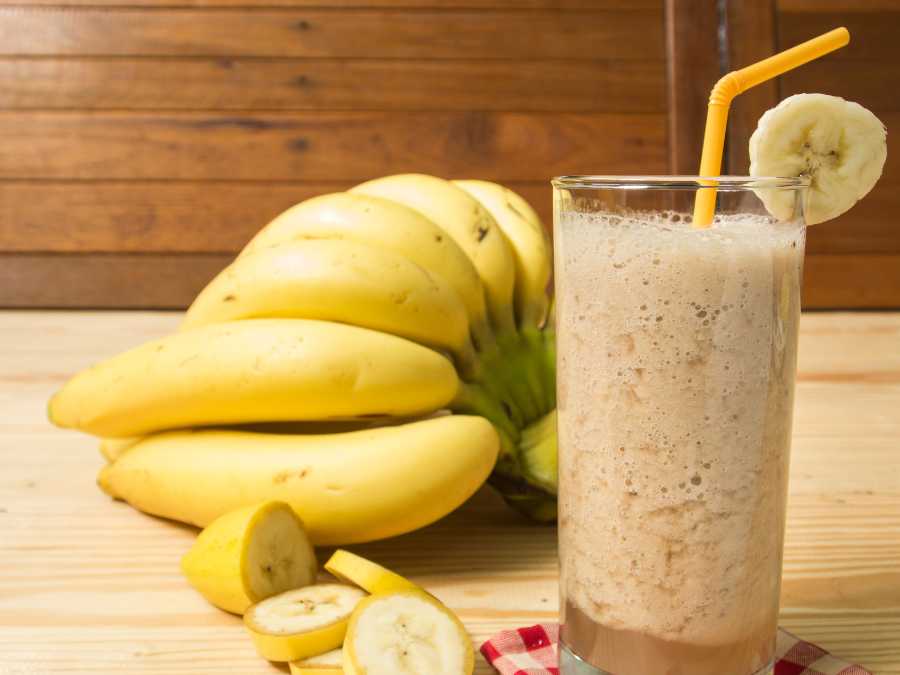 It’s unrealistic to eliminate sweet flavors entirely, especially for children. Instead, focus on where that sweetness comes from.
It’s unrealistic to eliminate sweet flavors entirely, especially for children. Instead, focus on where that sweetness comes from.
Skip processed snacks and opt for natural sugars found in whole fruits or honey in moderation.
Try homemade fruit popsicles, smoothies with bananas or dates, or yogurt parfaits topped with berries instead of sugary cereals or cakes.
4. Get Kids Involved in the Cooking Process
 Children are more likely to try foods they’ve helped prepare.
Children are more likely to try foods they’ve helped prepare.
Depending on their age, kids can wash vegetables, tear lettuce, stir ingredients, or even help measure spices.
This not only boosts their confidence and teaches life skills, but it also makes healthy meals feel more personal and fun.
Cooking can become a special bonding time, not just a chore.
5. Create a Weekly Meal Plan
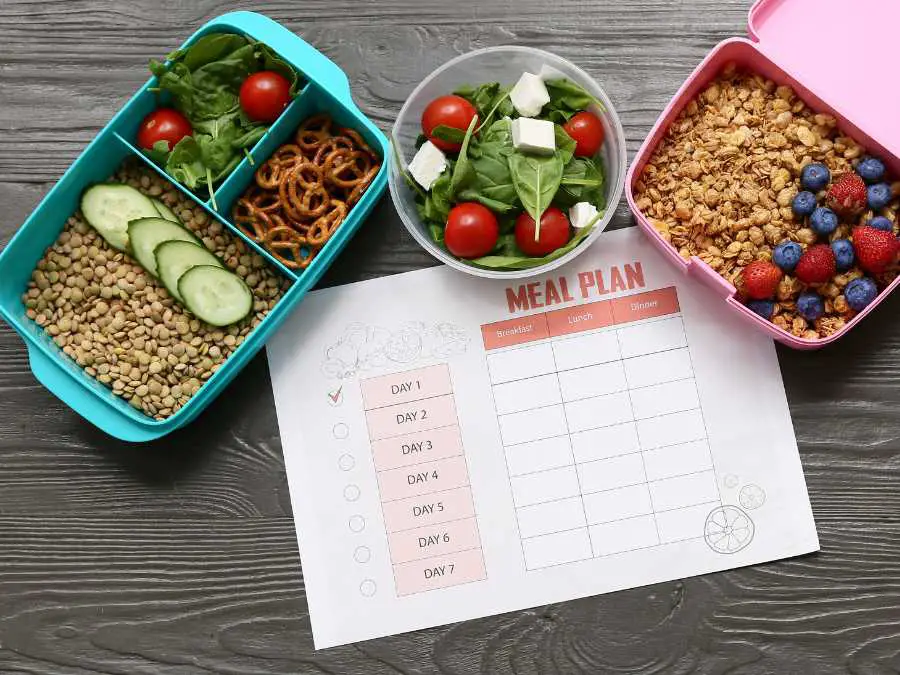 Planning meals in advance can take a lot of stress off your shoulders during the week.
Planning meals in advance can take a lot of stress off your shoulders during the week.
You can plan breakfasts, school lunches, and dinners in one sitting, and even prep ingredients on the weekend.
A well-thought-out meal plan saves money, reduces food waste, and ensures your kids are getting a variety of nutrients across the week.
It also cuts down on the temptation to order fast food in a pinch.
6. Introduce One New Food at a Time
 Too many unfamiliar foods at once can overwhelm children, especially picky eaters.
Too many unfamiliar foods at once can overwhelm children, especially picky eaters.
Instead, introduce one new item per meal and pair it with something they already enjoy.
For instance, if they like pasta, add in some finely chopped spinach to the sauce.
Over time, their palate expands naturally and without pressure.
7. Serve Water or Milk as the Go-To Drink
 Drinks like soda and packaged fruit juices are packed with added sugars and empty calories.
Drinks like soda and packaged fruit juices are packed with added sugars and empty calories.
Water is always the best choice for hydration, and milk (or dairy-free alternatives) provides calcium and vitamin D.
You can make water more exciting by adding slices of fruit, mint, or cucumbers for a refreshing twist.
8. Use Fun Names and Creative Presentations
 Presentation matters more than you might think.
Presentation matters more than you might think.
Calling broccoli “superhero trees” or a green smoothie “monster juice” can go a long way.
Arrange food in a smiley face or animal shape to make mealtime more exciting.
Let your child create their own “food art” plate to encourage exploration and creativity with healthy foods.
9. Stock a Healthy Snack Drawer or Basket
 Keep a dedicated space in your fridge or pantry for healthy snacks that are easy to grab.
Keep a dedicated space in your fridge or pantry for healthy snacks that are easy to grab.
Think apple slices, grapes, boiled eggs, trail mix, whole grain crackers, hummus, or yogurt tubes.
When hunger strikes, especially after school, having nutritious options ready helps prevent unnecessary junk food grabs.
10. Practice Mindful Eating at the Table

Encourage your child to sit at the table without distractions like screens or toys during meals.
Teach them to eat slowly, chew their food well, and recognize when they’re full.
Mindful eating helps build better digestion habits, encourages kids to enjoy their food, and reduces overeating or emotional eating.
11. Repurpose Leftovers into New Meals
 Leftovers don’t have to be boring.
Leftovers don’t have to be boring.
Turn last night’s grilled chicken into wraps, add roasted veggies into scrambled eggs, or use leftover rice in a homemade fried rice dish.
Reinventing what’s already in your fridge saves time, reduces waste, and gives your kids a fresh twist on familiar meals.
12. Offer Multiple Choices (Within Limits)
 Instead of asking, “What do you want to eat?” (which often leads to pizza or cookies), try offering structured choices like:
Instead of asking, “What do you want to eat?” (which often leads to pizza or cookies), try offering structured choices like:
“Would you like carrots or cherry tomatoes with lunch?” or “Do you want yogurt or an apple for your snack?”
This gives kids a sense of control while keeping the options healthy.
13. Sneak in Nutrition Where You Can

Some kids might not be open to leafy greens or lentils on their own, and that’s okay.
You can sneak nutrients into foods they already love.
Blend spinach into smoothies, mash chickpeas into burger patties, or bake banana muffins with flaxseed and grated zucchini.
These little hacks add up over time.
14. Model Healthy Eating Habits Yourself
 Kids are always watching, so make sure you’re practicing what you preach.
Kids are always watching, so make sure you’re practicing what you preach.
When they see you enjoying your salad, sipping water, or choosing fruit over chips, they’ll be more inclined to mirror those habits.
Make healthy eating a family effort, not just a rule for them.
15. Celebrate Progress, Not Perfection
 There will be days when things don’t go as planned, and that’s okay.
There will be days when things don’t go as planned, and that’s okay.
The goal isn’t perfect meals every time, but to foster a healthy relationship with food and steady improvement.
Celebrate when your child tries a new veggie or eats a balanced plate. Encourage, don’t pressure, and stay consistent.
COMPELLING REASONS WHY HEALTHY MEALS MATTER FOR KIDS
1. Supports Proper Growth and Development
 Children are in a constant state of growth, and their bodies need the right mix of nutrients to build strong bones, muscles, and tissues.
Children are in a constant state of growth, and their bodies need the right mix of nutrients to build strong bones, muscles, and tissues.
A diet rich in vitamins, minerals, and protein ensures they grow at a healthy rate and meet developmental milestones.
2. Boosts Brain Function and Academic Performance
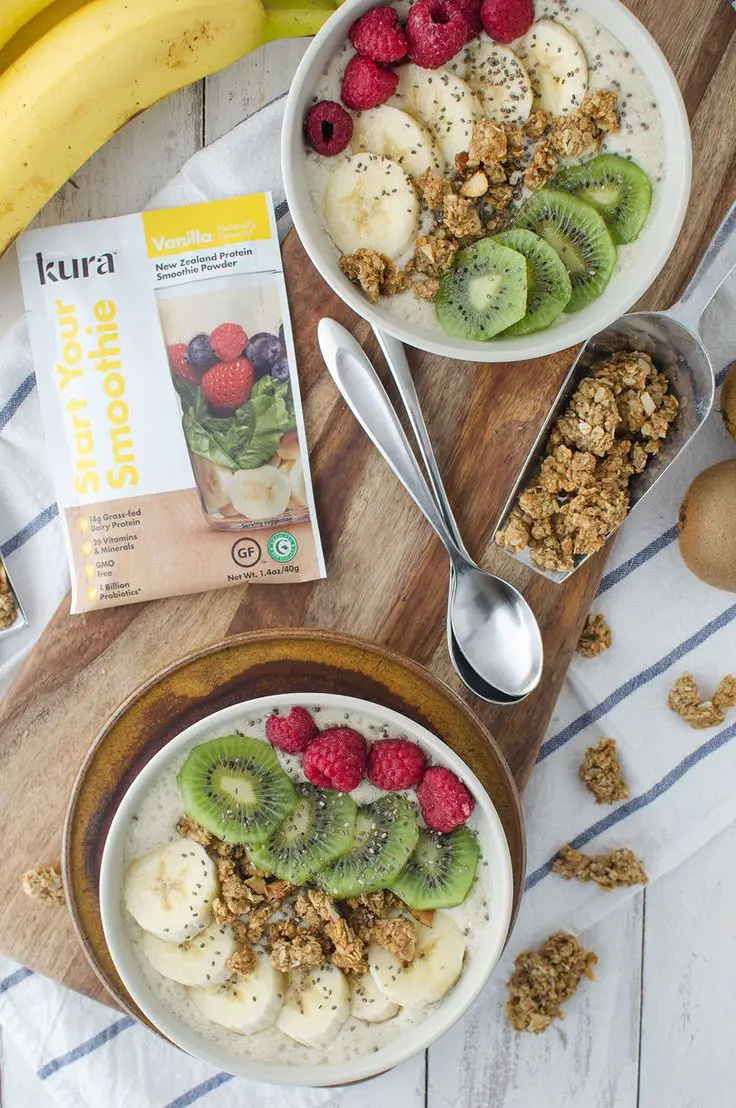
Healthy meals, especially those with omega-3s, whole grains, and leafy greens, fuel a child’s brain.
Nutrient-rich foods improve memory, concentration, and overall cognitive performance, helping them stay alert and focused in school.
3. Strengthens the Immune System
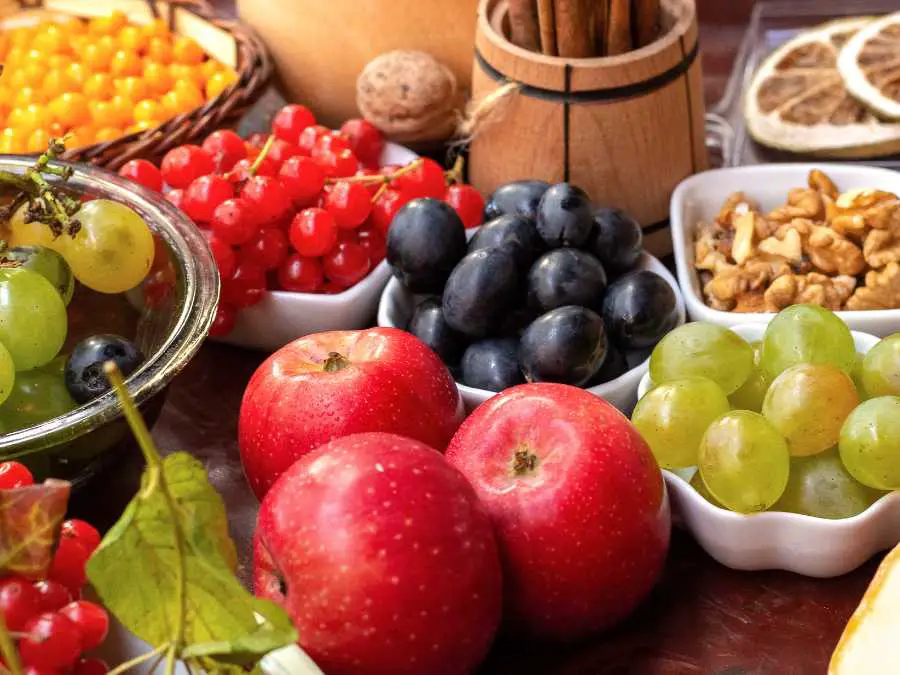
A diet filled with fruits, vegetables, and lean proteins gives kids the immune-boosting nutrients they need, such as vitamin C, zinc, and antioxidants.
This helps them fight off infections more effectively and stay healthier throughout the year.
4. Establishes Lifelong Eating Habits
 The foods kids grow up eating shape their future choices.
The foods kids grow up eating shape their future choices.
Teaching them to love whole, nourishing meals sets a strong foundation for lifelong health and can reduce the risk of chronic diseases later in life.
5. Promotes Healthy Weight Management
 Nutritious meals help regulate energy intake and keep kids full longer, reducing cravings for junk food and sugary snacks.
Nutritious meals help regulate energy intake and keep kids full longer, reducing cravings for junk food and sugary snacks.
A healthy diet combined with physical activity supports a balanced weight without restrictive eating.
6. Improves Mood and Emotional Well-Being
 What kids eat can directly impact their mood.
What kids eat can directly impact their mood.
Meals rich in complex carbs, protein, and healthy fats help stabilize blood sugar and provide steady energy, which can reduce mood swings, irritability, and fatigue.
7. Prevents Nutritional Deficiencies
 Kids need a wide range of vitamins and minerals.
Kids need a wide range of vitamins and minerals.
A diet lacking in variety can lead to deficiencies that may affect growth, behavior, and even academic performance.
Healthy meals help meet their nutritional needs daily.
8. Enhances Digestive Health
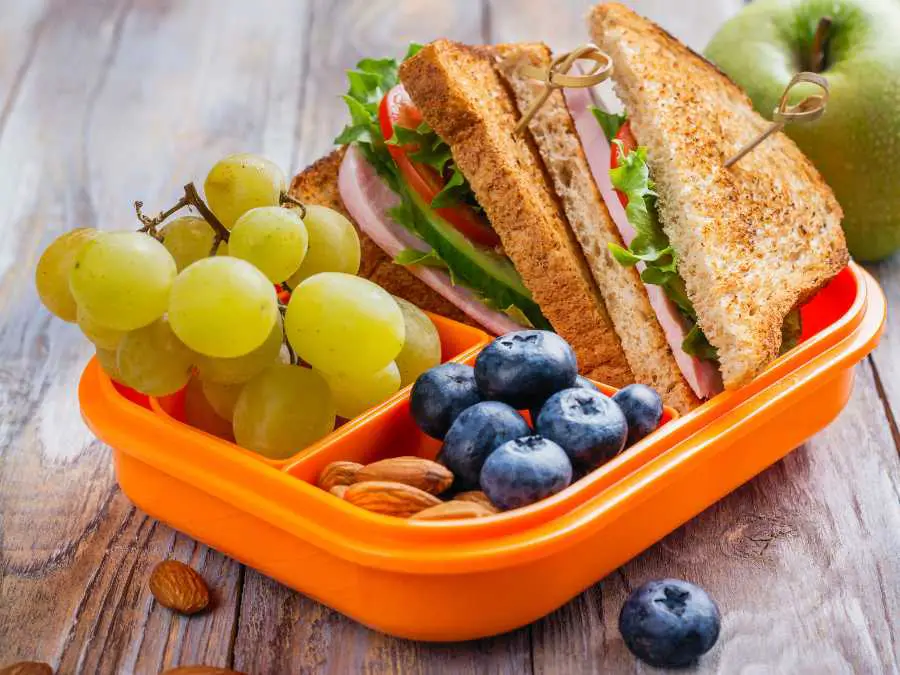 Fiber-rich foods like fruits, vegetables, and whole grains help maintain a healthy digestive system.
Fiber-rich foods like fruits, vegetables, and whole grains help maintain a healthy digestive system.
This prevents constipation and supports a strong gut microbiome, which also plays a role in immunity and mental health.
9. Reduces the Risk of Chronic Diseases
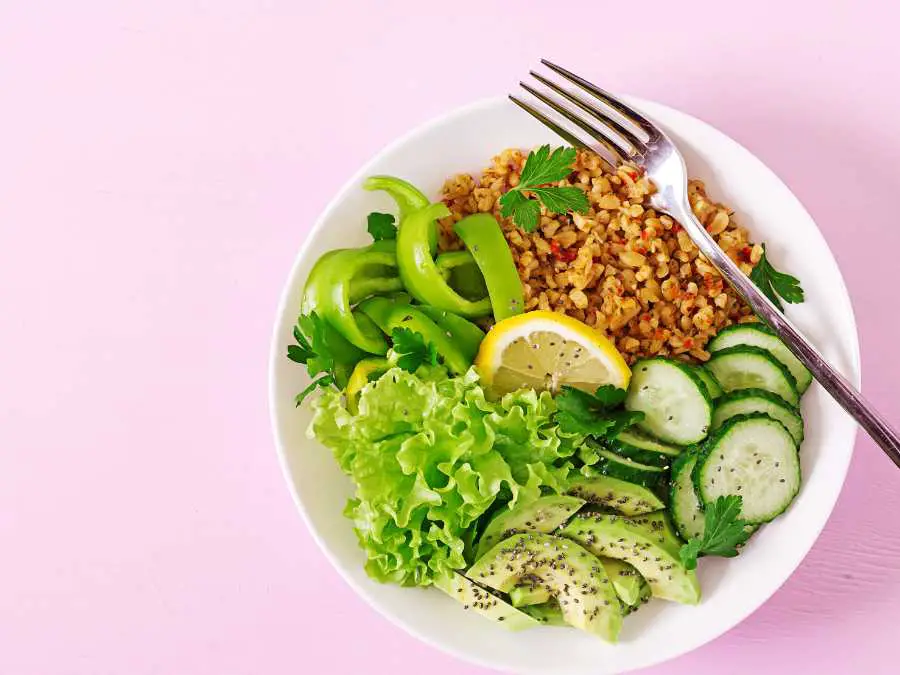 Early exposure to unhealthy eating increases the risk of type 2 diabetes, heart disease, and obesity later in life.
Early exposure to unhealthy eating increases the risk of type 2 diabetes, heart disease, and obesity later in life.
By encouraging healthy meals now, parents can help protect their children from these issues down the road.
10. Promotes Healthy Relationships with Food
 Kids who are exposed to balanced, diverse, and enjoyable meals learn that food is fuel, not something to fear or obsess over.
Kids who are exposed to balanced, diverse, and enjoyable meals learn that food is fuel, not something to fear or obsess over.
This reduces the risk of disordered eating habits and helps them appreciate nourishment in a positive light.
Creating healthy meals for kids doesn’t have to be complicated or overwhelming.
It’s about making small, thoughtful choices each day that add up to big benefits over time.
Building colorful plates and involving your kids in the kitchen, each effort you make helps shape their habits, boost their health, and foster a positive relationship with food.
Perfection isn’t the goal, consistency and creativity are.
Some days will be easier than others, and that’s completely okay.
What matters most is that you’re trying, learning, and leading by example.
With love, patience, and a little planning, you can turn mealtimes into moments that nourish both body and heart.
Take what works for your family, adapt as needed, and know that every healthy bite is a step toward a brighter, stronger
You could also like;
HOW TO MAKE FREEZER MEALS FOR MOMS, 29 EASY WAYS
Leave a Reply